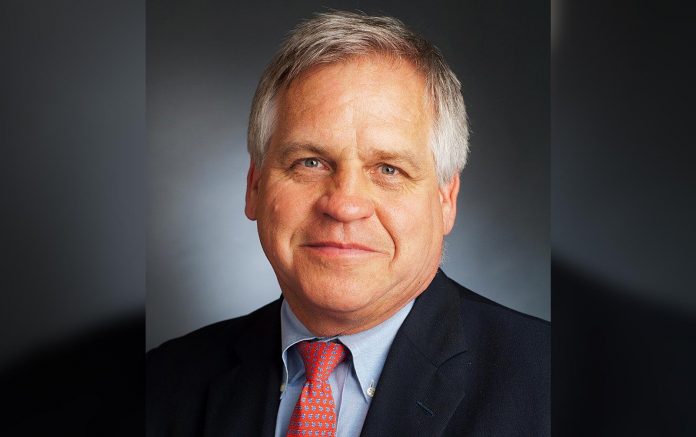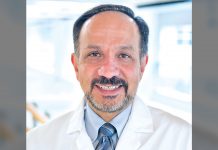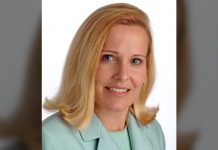Posted: June 2017
Long-term IASLC member Bruce E. Johnson, MD, will serve as the 2017– 2018 President of the American Society of Clinical Oncology (ASCO) upon the conclusion of the 2017 ASCO Annual Meeting. Dr. Johnson describes his experience, vision, and goals for the field of thoracic oncology and oncology in general for IASLC Lung Cancer News readers.
Where is oncology going as a field?
The field of oncology is rapidly evolving as we develop treatments for subsets of our patients with cancer. The era when all patients with a specific type of cancer (lung cancer, colon cancer, and breast cancer) are treated in a similar fashion is rapidly coming to an end. The era of targeted therapies for subsets of patients has arrived; those with HER2 positive breast cancer treated with traztuzumab, KRAS wild type colon cancer treated with cetuximab, and EGFR mutant lung cancer treated with an EGFR-TKI. The addition of immunotherapy to our therapeutic arsenal has opened up patient groups who can be identified for initial therapy with checkpoint inhibitors. Patients with lung cancer with greater than 50% of their tumor cells expressing programmed cell death-ligand 1 (PD-L1) and patients with colon cancer with microsatellite instability should be treated with checkpoint inhibitors. I anticipate this cycle will continue where patients will continue to have predictive biomarkers identified that will dictate their therapies.
What is the role of thoracic oncology in the evolution of oncology?
How will the insights and challenges you’ve experienced as a leader in thoracic oncology influence your tenure as ASCO President? I am proud to be the first ASCO President with an interest in thoracic oncology since David Johnson (2004-2005) and Paul Bunn (2002-2003) served more than a decade ago. My theme for the coming year is, “Delivering Discoveries, Expanding the Reach of Precision Medicine.” Lung cancer has served as a model for precision medicine, with 5 subsets of non-small cell lung cancer now effectively targeted. Our field has dramatically transformed since 2004 with the discovery of the association between mutations of the epidermal growth factor receptor (EGFR) and treatment with EGFR-TKIs. This has been followed by the identification of ALK rearrangements and treatment with 4 different approved ALK tyrosine kinase inhibitors, ROS1 rearrangements and treatment with crizotinib, V600E BRAF mutations and treatment with the combination of dabrafenib plus trametinib (now approved in Europe), and PD-L1 positive NSCLC (> 50%) and treatment with pembrolizumab. Thoracic Oncology is the flagship of Precision Medicine. I stated 5 years ago that a goal for the members of our Lung Cancer Program was to see more than 50% of our patients treated with agents other than chemotherapy by the time I retired from clinical medicine. I am very proud that we are nearing that mark in lung cancer; however, much more needs to be done.
What special challenges do you anticipate in an era when the NIH and NCI budgets are threatened with cuts?
The additional two billion dollars added to the NIH budget this year (2017) has been a welcome addition but is being done by a yearly appropriation. Despite this infusion of funds, our future remains uncertain with the administration proposing at the same time in May of this year that the budget of the NIH be cut by $5.8 billion dollars. The NIH and NCI have typically received bipartisan support from Congress. However, funding has been hampered by a series of continuing resolutions passed by Congress rather than the more traditional means of prioritization and funding through the appropriations process. I believe the real threat in these uncertain times is the lack of predictability faced by our young investigators either considering entering the field or staying in our field. The stability of funding to the scientific community and particularly our young investigators, really needs to be consistent with ongoing support from the federal government and other sources to make research a reasonable career choice. We look to our lawmakers to make rational decisions to continue to support our clinical and laboratory research which is critically needed for the continued advances and broader application of precision medicine.
Comment, if you can, on the research “alliance” that seems to exist between industry and academia?
The ongoing research in thoracic oncology has been vigorously supported by our industry colleagues. Those of us in thoracic oncology continue to benefit from the investment by the pharmaceutical industry developing drugs for different subsets of our patients. Our industry colleagues have been supportive of the precision medicine initiatives with multiple targeted agents now approved in NSCLC, including those targeting EGFR mutation, ALK rearrangements, ROS1 rearrangements, BRAF mutations, and high levels of PD-L1 expression. My own personal experience working with the pharmaceutical industry has been highlighted by my interactions with GSK and now Novartis to target V600E BRAF mutant NSCLC. Mark Kris from Memorial Sloan Kettering Cancer Center and I chaired the Clinical Trials Committee of the Lung Cancer Mutation Consortium and were charged with helping identify targeted agents for subsets of our lung cancer patients. We did not have a regimen for BRAF mutant NSCLC so we approached GSK,which was successfully developing the BRAF inhibitor, dabrafenib, plus the MEK inhibitor, trametinib, for V600E BRAF mutant melanoma. The investigators from the Lung Cancer Mutation Consortium were already identifying the subset of patients with adenocarcinoma of the lung with BRAF mutations. GSK agreed to support the clinical trial if we identified the BRAF mutant lung cancer patients. We are now reporting a 63% response rate and a 10-month progression-free survival for the subset of patients with V600E mutations treated with the combination, which has been approved for use in Europe. We anticipate these meaningful industry collaborations will continue for our different subsets of patients with lung cancer.
What roles should academic/medical societies play in the advancement of science and medicine, now and in the future?
Our academic/medical societies play a critical role in the advancement and medicine. One of the pillars of the American Society of Clinical Oncology is the transformation of our cancer care delivery system by new investments in science which I enthusiastically support. The investments can come through both private and public support. Our societies play a critical role advocating for a consistent and increasing public investment in our research enterprise. I have participated in trips to Capitol Hill to meet with our elected representatives to advocate for continued and increasing federal funding. This is particularly critical for long-term studies that can continue to improve the outcomes of our patients with cancer and those at risk for cancer. The areas important for thoracic oncology that need to be supported by federal and foundation funding include ongoing work to develop methods to prevent smoking initiation and encourage smoking cessation, the leading cause of lung cancer. The other work that needs to be supported outside of industry includes lung cancer screening studies and important work on adjuvant therapies. These areas are critical for increasing the proportion of patients with early stage disease and to prevent those who undergo surgical resection from having disease recurrence. One must be mindful of the long-term research which is critical for our field.
I have been proud of my membership in the International Association for the Study of Lung Cancer. I vividly remember attending my first IASLC meeting in Toronto, Canada in 1985. I was one of 1,000 attendees at the 4th International meeting where I had 3 oral presentations and 3 poster presentations. I look forward to attending in Yokohama this fall and my ongoing work with both ASCO and the IASLC.
Dr. Johnson is Chief Clinical Research Officer and Institute Physician at the Dana-Farber Cancer Institute, Boston, US, Professor of Medicine at Harvard Medical School, and Director of the Dana-Farber/Harvard Cancer Center Lung Cancer Program.











